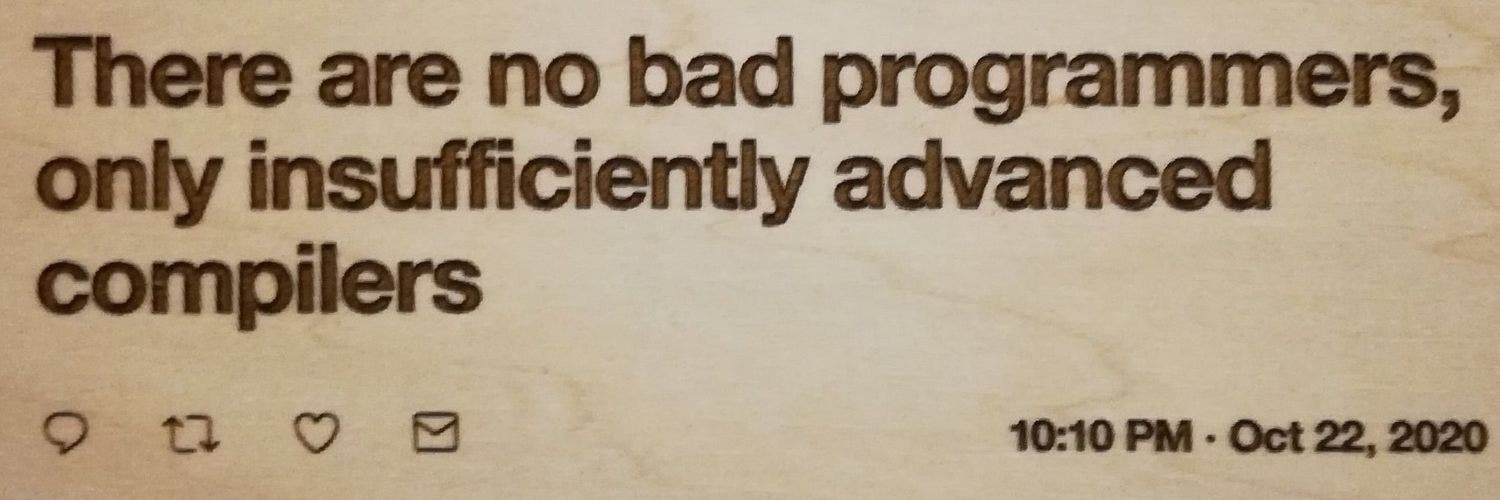


"We spent decades trying to invent a sufficiently smart compiler when we should have been inventing a sufficiently empathetic one."
Rust Compiler team member. If you have to search for answers when the compiler is talking to you, that's a bug.
There are no bad programmers, only insufficiently advanced compilers.
Cache-locality awareness evangelist.
💼@aws, opinions my own
he/him
Trans rights are human rights
This profile is from a federated server and may be incomplete. Browse more on the original instance.